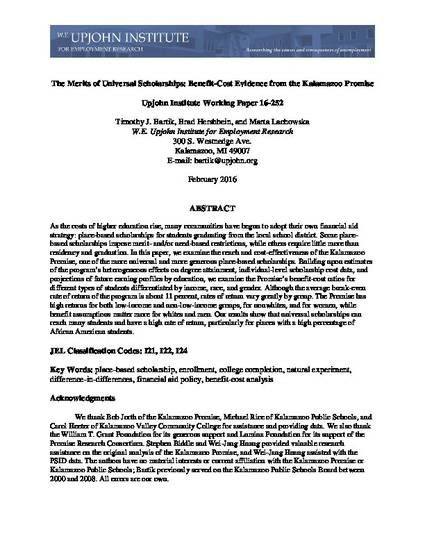
https://orcid.org/0000-0002-6238-8181
As higher education costs rise, many communities have begun to adopt their own financial aid strategy: place-based scholarships for students graduating from the local school district. In this paper, we examine the benefits and costs of the Kalamazoo Promise, one of the more universal and more generous place-based scholarships. Building upon estimates of the program's heterogeneous effects on degree attainment, scholarship cost data, and projections of future earnings by education, we examine the Promise’s benefit-cost ratios for students differentiated by income, race, and gender. Although the average rate of return of the program is 11 percent, rates of return vary greatly by group. The Promise has high returns for both low-income and non-low income groups, for non-whites, and for women, while benefit assumptions matter more for whites and men. Our results show that universal scholarships can reach many students and have a high rate of return, particularly for places with a high percentage of African-American students. They also highlight the importance of disaggregating benefits and costs by subgroup when performing benefit-cost analysis when the treatment is heterogeneous.
